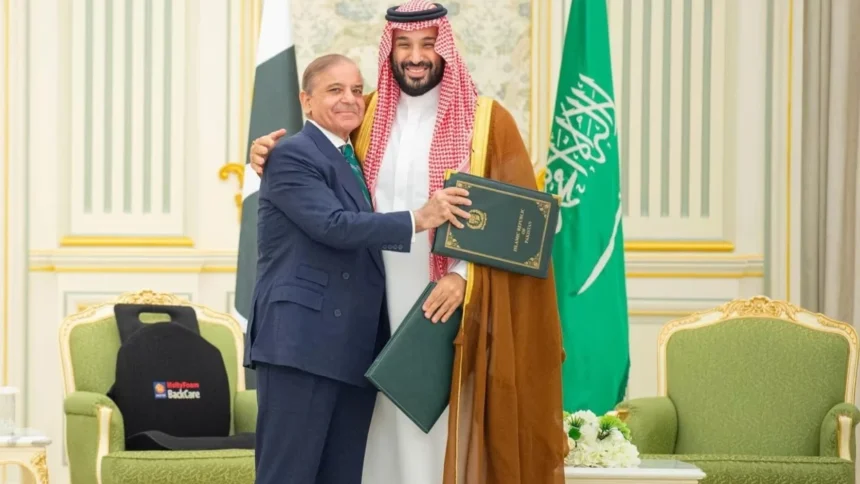In a landmark move, Saudi Arabia and Pakistan signed a mutual defense agreement (SMDA) on Wednesday, signaling a new era of strategic cooperation between the two nations. The accord, witnessed at the Royal Court of Al-Yamamah Palace in Riyadh, was sealed by Pakistani Prime Minister Shehbaz Sharif and Saudi Crown Prince Mohammed bin Salman, amid full royal protocol, fighter jet salutes, and a red-carpet welcome.
A Strategic Turning Point
The agreement comes at a critical geopolitical moment, with regional instability fueled by Israel’s military operations in Gaza and its attacks on neighboring states, including a recent strike in Doha, Qatar. Simultaneously, tensions between India and Pakistan have escalated, following a four-day military clash earlier this year that nearly tipped South Asia into full-scale war.
According to Pakistan’s Foreign Ministry, the pact reflects a “shared commitment to strengthen security, promote regional peace, and reinforce joint deterrence against any aggression.” The ministry emphasized: “Any aggression against one country will be considered aggression against both.”
Expert Reactions
Analysts describe the pact as a “turning point” for both nations.
- Asfandyar Mir, senior fellow at the Stimson Center, noted: “Pakistan previously held mutual defense treaties with the U.S. during the Cold War, but none survived beyond the 1970s. This pact is historic.”
- Muhammad Faisal, a South Asia security scholar, argued the deal could serve as a model for future bilateral defense cooperation with Gulf states such as the UAE and Qatar.
Short-term impacts are expected to include expanded joint training, defense production collaboration, and a possible increase of Pakistani troops stationed in Saudi Arabia.
Historical Ties
Saudi Arabia was among the first countries to recognize Pakistan after its independence in 1947. Decades of cooperation followed, including the 1982 agreement on military training and deployment of Pakistani forces to the kingdom. Pakistan has trained over 8,000 Saudi military personnel since the 1960s.
Regional and Global Implications
The timing of the pact raises questions in Washington, where U.S. officials remain wary of Pakistan’s missile and nuclear programs. During President Joe Biden’s administration, sanctions targeted Pakistani entities over alleged ballistic development.
Analysts also highlight the risk of Pakistan being drawn into Saudi regional rivalries, particularly with Iran. However, supporters argue the deal enhances Pakistan’s geopolitical leverage, especially as India deepens ties with Riyadh.
India’s Ministry of External Affairs confirmed it is “studying the implications” of the pact for national and regional security.
The Nuclear Question
Speculation persists over whether Saudi Arabia seeks a nuclear umbrella from Pakistan, though experts stress the current agreement does not imply nuclear guarantees. “There is nothing in the text suggesting an extended deterrence arrangement,” security analyst Sahar Khan clarified.
While largely symbolic at this stage, the pact underscores a deepening Saudi–Pakistani partnership in an increasingly volatile Middle East. Experts agree it will intensify political and defense coordination and may reshape the balance of power in South Asia and the Gulf.







